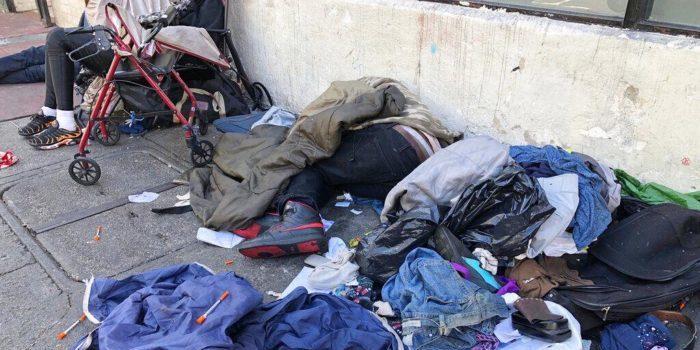(San Francisco Mayor London Breed and Supervisor Matt Dorsey announced a new initiative to require individuals who wish to make use of county-funded cash welfare programs to be screened for substance abuse disorders and be enrolled in substance abuse treatment to receive welfare payments.
“We fund a wide range of services, and we want to help people get the care they need but under current state law, local government lacks tools to compel people into treatment,” said Breed in a public statement. “This initiative aims to create more accountability and help get people to accept the treatment and services they need.”
It marked the latest flip-flop of a blue city official to policies long advocated by conservatives and once aggressively derided and condemned by the Left as heartless and callous in the face of a humanitarian crisis.
Yet, San Francisco is now reaping the unintended consequences of its short-sighted permissiveness in allowing rampant crime and homelessness during much of the Trump era and early Biden administration as it seeks to rein in an ever-growing problem.
Meanwhile, in New York, both the governor and New York City mayor have recently taken a hard line—even xenophobic—stance on the Biden administration’s open-border immigration policies; and in Dallas, former Democrat mayor Eric Johnson actually switched parties last week in a dispute over tax cuts.
If San Francisco’s program is approved by the County Board of Supervisors, any adult who either refuses substance abuse treatment or does not “successfully engage in treatment” would either have their applications for County Adult Assistance Programs payments denied or their ongoing payments discontinued.
These treatment programs would include a range of interventions from residential treatment, medical detox, medically-assisted treatment, outpatient options, and abstinence-based treatment, among others based on the needs of the client.
Individuals who refuse or do not successfully engage in treatment would not be eligible to receive CAAP cash assistance and their application would be denied, or they would be discontinued from receiving cash assistance.
In the release announcing the policy, three of the county’s 11 supervisors issued statements supporting the policy, including Supervisors Matt Dorsey, Catherine Stefani and Raphael Mandelman.
“In our pursuit to address the opioid crisis, let our message be clear: the City isn’t going to give you money to buy drugs,” Stefani said.
“If you are ready for help, we are ready to help you,” she continued. “I believe that requiring individuals with addiction issues to be in a treatment program to receive county monetary assistance is not just a policy but a compassionate pathway towards recovery and stability.”
According to the San Francisco Human Services Agency, which runs the city and county social services programs, 20% of CAAP recipients self-disclosed in an initial interview with SFHSA staff that they have substance abuse issues.
The 2022 San Francisco homeless county found that 52% of homeless individuals surveyed reported their substance abuse as a “disabling health condition.”
“The incidence of substance use disorders among San Francisco’s CAAP population is significantly higher than among the citywide population generally, especially among our recipients who are experiencing homelessness,” said SFHSA Executive Trent Rhorer.
“This initiative aims to support our clients who have substance use disorders by motivating them to get the help they need, which we hope will lead to ending their drug abuse and their homelessness,” he said.
Headline USA’s Ben Sellers contributed to this report.

